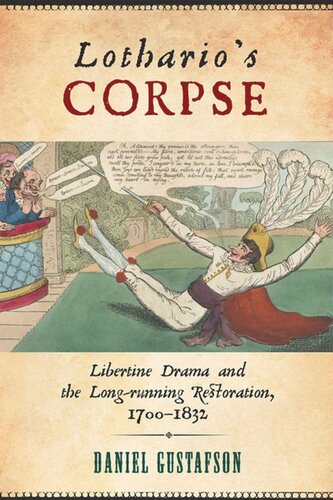

Most ebook files are in PDF format, so you can easily read them using various software such as Foxit Reader or directly on the Google Chrome browser.
Some ebook files are released by publishers in other formats such as .awz, .mobi, .epub, .fb2, etc. You may need to install specific software to read these formats on mobile/PC, such as Calibre.
Please read the tutorial at this link: https://ebookbell.com/faq
We offer FREE conversion to the popular formats you request; however, this may take some time. Therefore, right after payment, please email us, and we will try to provide the service as quickly as possible.
For some exceptional file formats or broken links (if any), please refrain from opening any disputes. Instead, email us first, and we will try to assist within a maximum of 6 hours.
EbookBell Team

5.0
60 reviewsLothario’s Corpse unearths a performance history, on and off the stage, of Restoration libertine drama in Britain’s eighteenth and early nineteenth centuries. While standard theater histories emphasize libertine drama’s gradual disappearance from the nation’s acting repertory following the dispersal of Stuart rule in 1688, Daniel Gustafson traces its persistent appeal for writers and performers wrestling with the powers of the emergent liberal subject and the tensions of that subject with sovereign absolutism. With its radical, absolutist characters and its scenarios of aristocratic license, Restoration libertine drama became a critical force with which to engage in debates about the liberty-loving British subject’s relation to key forms of liberal power and about the troubling allure of lawless sovereign power that lingers at the heart of the liberal imagination. Weaving together readings of a set of literary texts, theater anecdotes, political writings, and performances, Gustafson illustrates how the corpse of the Restoration stage libertine is revived in the period’s debates about liberty, sovereign desire, and the subject’s relation to modern forms of social control. Ultimately, Lothario’s Corpse suggests the “long-running” nature of Restoration theatrical culture, its revived and revised performances vital to what makes post-1688 Britain modern.
Published by Bucknell University Press. Distributed worldwide by Rutgers University Press.